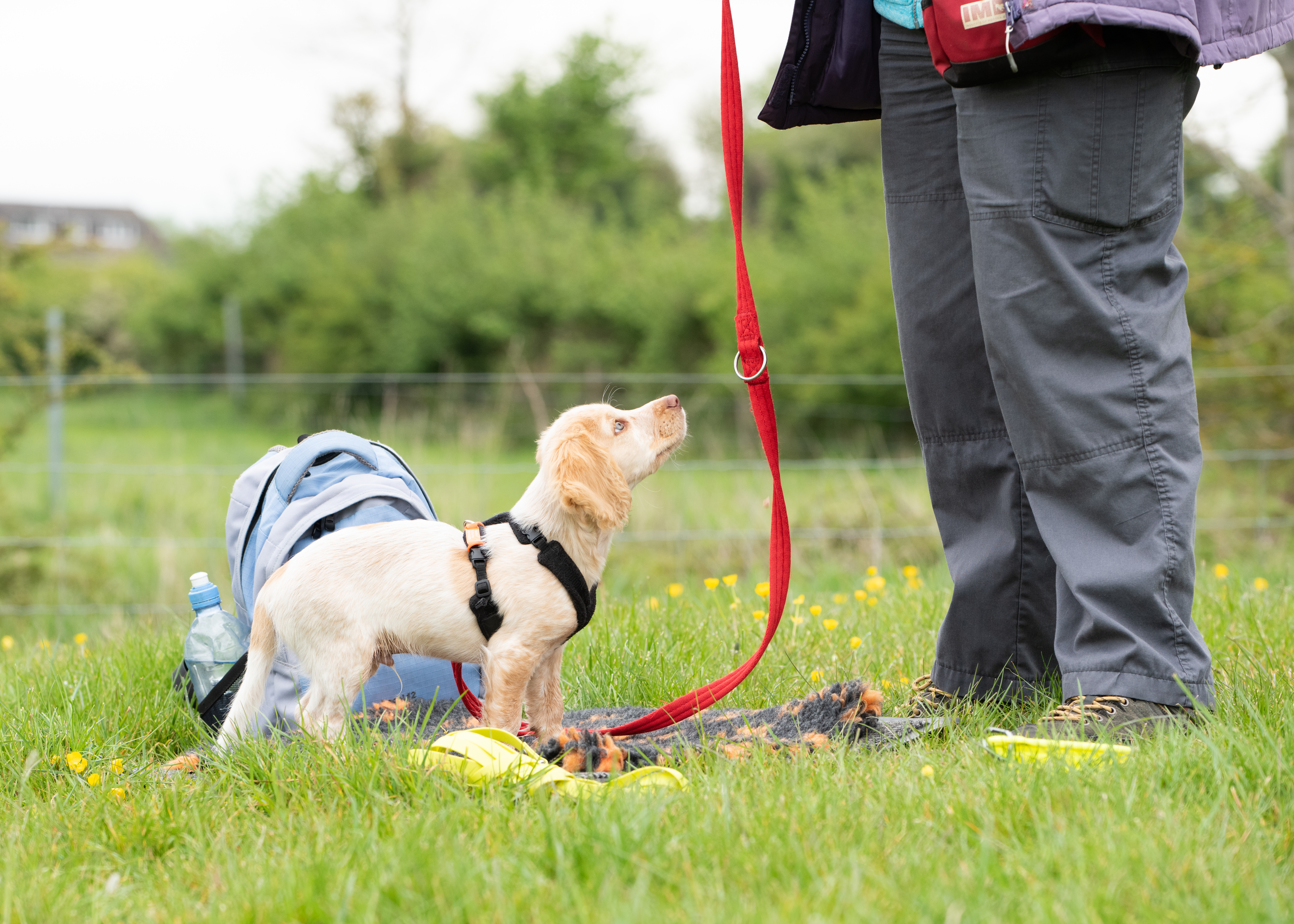When we welcome a new puppy into our homes and lives, it’s inevitable that a little chaos will arrive with them. If you think about it, this is similar to having a new-born baby: they don’t come pre-programmed with knowledge or self-regulation. That is all for us to teach and help develop.
Often, we are asked by owners who are struggling to get the results they want, why particular training methods are not working. More often than not, the answer is that the puppy needs more time.

Consistency and repetition
Consistency and a lot of repetition are the closest I can give you to a magical solution. It’s not easy when you’re being woken persistently during the night or clearing up after toilet accidents on a daily basis, but it’s the truth: puppies need time to grow and to learn routines and the only way this can happen is if you persevere, repeat, time and time again until you get the behaviour you are looking for.As well as setting yourself some realistic expectations, you can do some research on what motivates your puppy. Rewarding the good behaviour and creating situations to minimise unwanted behaviour is the simplest and most effective way to help you on the way to having a content dog (and happy family). Some will do anything for food, others love the praise and cuddles. You might find there’s a particularly loved toy that can be brought out of the cupboard when the wee ends up in the garden, not the kitchen. It doesn’t really matter what it is, just that it has an effect on them; motivates and excites them, so that they learn what it is that results in that reward. When Dave was a puppy his favourite thing was a barbie doll so that’s what we used for recall training.
It’s only words
While we’re on the topic of reinforcement, it’s important to remember that the words or cues your puppy will listen to will only be those you have taught them. We can get to work straight away with some basic cues, but the biggest issue we come across when it comes to words is people using the word ‘no’ to respond to behaviours they don’t want.When we react to an unwanted behaviour by saying ‘no’ it’s your tone of voice and body language that puppy becomes wary or scared of. It doesn’t teach them anything other than ‘people get cross and scary’ and the look we associate with guilt is more than likely fear.
Instead of using ‘no’, try to prevent situations where puppy can get things wrong in the first place. We call this ‘setting them up for success’ (and this doesn’t just relate to puppies!) but of course we are all only human and occasionally they will still doing something we don’t like, rather than giving them attention in the form of no, which can inadvertently become rewarding (like running around the garden trying to get a forbidden item from them – great game!) ask them to do something simple that they CAN do – recall, name response, play with a toy, hand touch etc.
Puppy Training
Potter Paws is a Dog Trainer in Buckinghamshire. Taking your puppy to group classes or undertaking 121 training is definitely most advisable as the input at a young age can help both you and them to form good habits as soon as possible. 121 training is great for foundation skills where as a well-run group class will introduce new skills but also provide controlled distractions. But, you will still need to choose and reinforce your chosen cues and family rules. They need to know that YOU are the one training them; it isn’t something anyone else can take on for you.In summary, you need to be consistent and repetitive, allow more time than you probably initially thought you needed, and only reinforce desired behaviour. Use your future adult classes to reinforce what you’ve already learnt together and add in some fun extras – which will also improve your bond with your dog – such as scentwork or tricks.